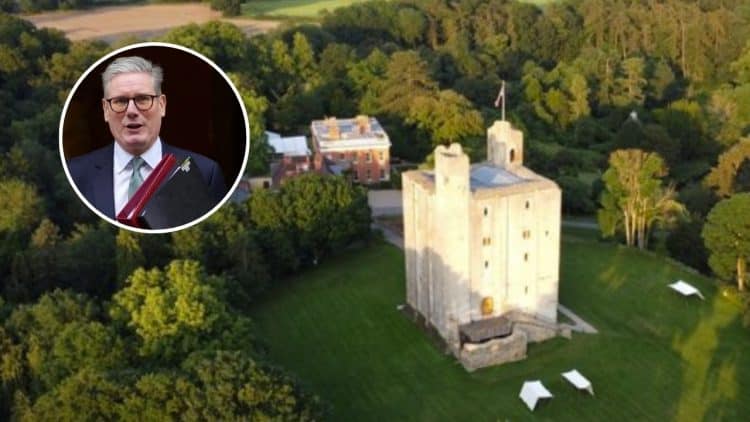Jason Lindsay, owner of Hedingham Castle in Essex, has strongly criticised Labour’s Budget, claiming it could undermine the stability of country houses across the UK. Lindsay, who owns the Grade I-listed Norman keep, expressed his anger over changes to the business property relief (BPR) scheme announced by Chancellor Rachel Reeves.
BPR changes could affect sales of country estates
Lindsay warned that the changes could impact not only the sale of land but also the sale of historic houses like his own. He said, “It’s made me so angry. This could end the stability that we’ve had for these properties.” Hedingham Castle, built around 1140, has been passed down through generations, and Lindsay feels the recent changes to BPR might threaten its future.
Until now, the castle had been “affordable” due to its status under a discretionary trust, with business property relief applied. However, the Budget proposes removing this relief, leaving Lindsay facing additional financial pressure. He described the new measure as akin to “getting another large mortgage.”
Labour’s Budget and its impact on heritage properties
Lindsay argues that Labour’s actions are a threat to the future of country estates, calling the move “cultural vandalism.” He pointed to a report from 1950, where civil servant Sir Ernest Gowers concluded that old families running large houses was the most economic solution for maintaining heritage properties.
Lindsay has called for a similar report today, inviting government officials to visit Hedingham Castle to see first-hand how the estate operates. “Come and see what the economics are. Talk to the people who work here and look at the jobs we create,” he urged. “It’s not about monocled owners, it’s about heritage that’s worth saving.”
Call for dialogue with the government
Lindsay acknowledged that the government needs to raise funds, but stressed the importance of finding a balanced approach. “If they’re just blindly going to say, ‘Let’s tax you out of existence,’ the damage will be irreparable,” he warned. Lindsay hopes that through dialogue, the government will understand the broader economic and cultural value of historic estates.
You may also like: WATCH: Boris Johnson mocked for his ‘gibberish’ Brexit explanation on French radio







